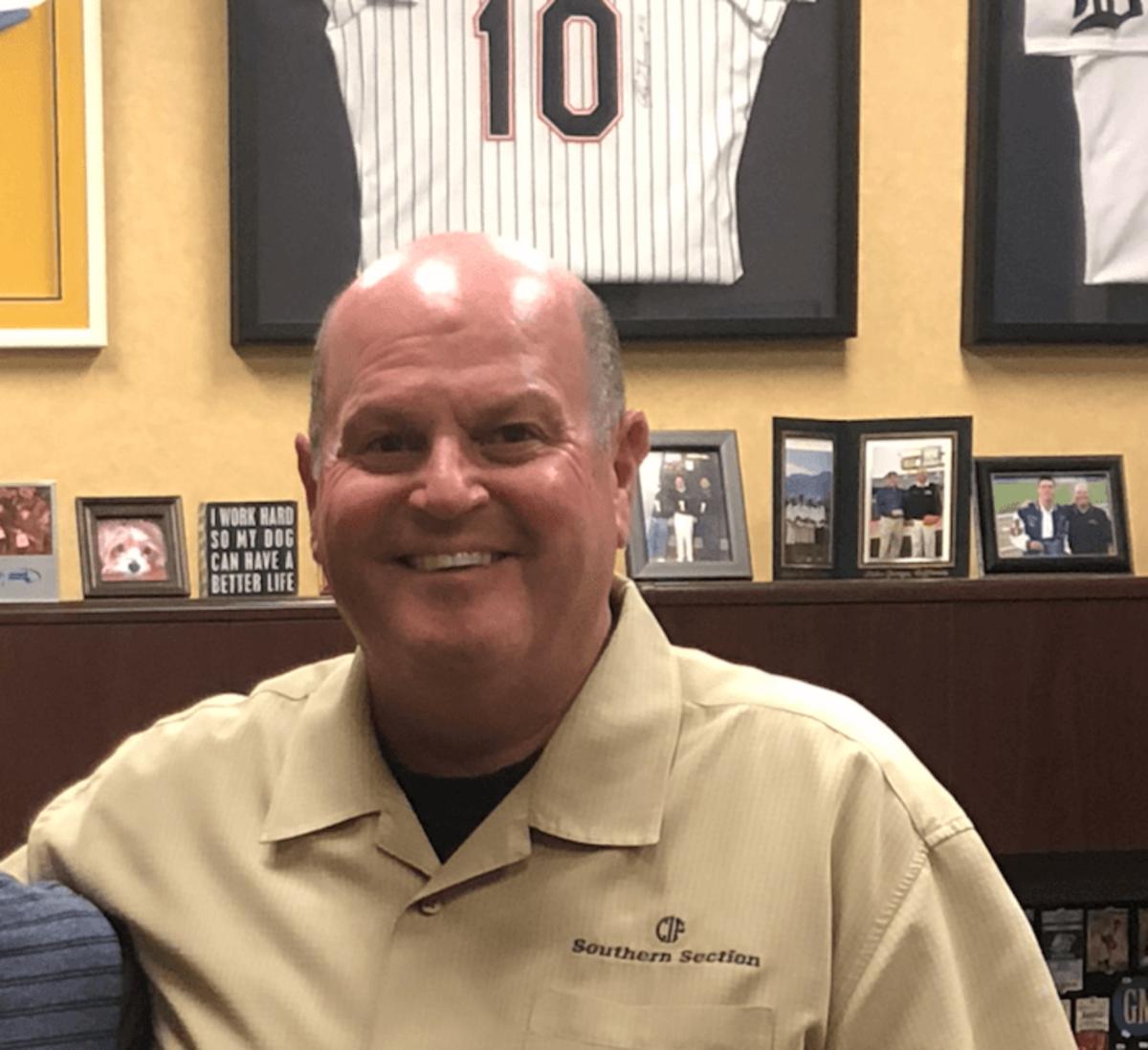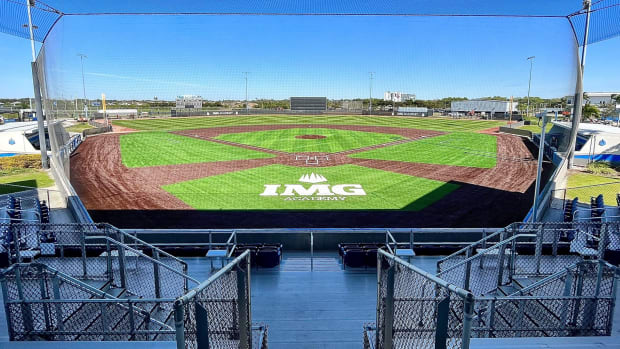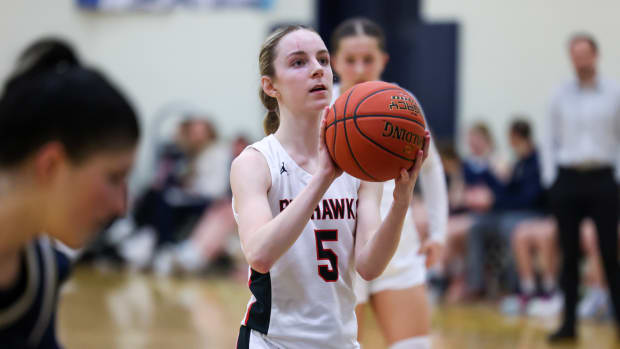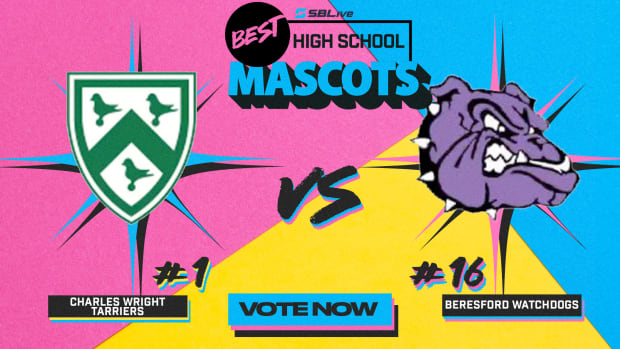The latest on how the CIF and Southern Section are planning for California high school sports in 2020-2021: Q&A with Rob Wigod

Three weeks ago, CIF Southern Section commissioner Rob Wigod spoke with Scorebook Live about contingency plans for high school sports in 2020-2021. He addressed the same topic on Wednesday in a second interview to discuss what's changed and where everything stands as of May 27.
You can listen to the full second interview with Wigod here.
Below are the highlights and most pertinent information from the podcast:
(Editor’s note: Questions and answers have been edited for clarity.)
Scorebook Live: Has anything changed since we last spoke (May 7) regarding contingency plans, or is everything still on the table?
Rob Wigod: Everything is still on the table. And the next step now is we have a commissioners meeting on June 9th and we're going to get to work as commissioners, together with the CIF state office, on trying to crystallize more of the potential scenarios that we see for fall sports and even beyond that, depending on how things work out.
Scorebook Live: Have you had any discussions about how the NFHS return-to-play guidelines for high school sports will affect the return to play in the Southern Section?
Rob Wigod: Oh, yes, absolutely. They did a remarkable job, really, of a very comprehensive and far reaching and far ranging document that can help us.
And I think that's really important for our schools and school districts to have those kinds of resources available to them. But we're still going to be focused on that individual decision at the school district level, at the head of the private school level. Whatever is out there in terms of recommendations and guidelines will be things that can help guide administrators, but I also believe that each of the individual communities has a decision to make, and will certainly utilize those kinds of resources.
Schools are going to be very closely connected to their local and state health authorities and county health authorities, to be sure that they're addressing the particular needs of their own community. So while the NFHS document just sent out was far reaching and applicable to all 50 states, there's still that local control element in this entire process that will be the responsibility of those local entities.
Scorebook Live: What would a high school football season look like with partial participation? Say in LA County, some schools aren't allowed to return to organized football, but in Ventura County and Orange County, at a local level, decisions are made where football games can occur. What are the contingency discussions like when talking about a partial return to football, if that's what it's going to take to get a season in?
Rob Wigod: That's a great question. We have to be monitoring those decisions about when teams are being allowed back on campus, when they're allowed back to practice and then be prepared to actually go out and play a season. And then a calendar needs to be established and published and then followed for those that are back and ready to go. What is that number? Is it 50 percent? Is it 60 percent, 70 percent? I think one thing everyone needs to realize is we will not have an all clear horn that blows and all of a sudden we'll have 100 percent of our teams back working and ready to go. So I think that's going to be a huge challenge for us.
We've actually started to go further than that, where we have been reaching out to superintendents and heads of private schools and asking them for their thoughts and their plans as we see them today, always realizing it's an ever changing situation. This is helping us get a better grasp and understanding of where they are and what they're expecting and along with that, it helps because we ask some questions about how they feel about the return of high school sports and what some of their philosophies would be about perhaps delaying the start or perhaps the movement of certain sports to different types of calendars based on sports that are less of a contact sport than others and things like that. It really goes back to the same point I've been making, which is that all options are on the table and we're doing the best we can to get information and feedback from those decision makers so that we can get a better handle on when a safe return can happen.
Scorebook Live: What do you think is a better scenario for the Section? Everyone plays a shortened football season beginning in January or seventy five percent of teams play, let's throw out a date, maybe October 1st to December?
Rob Wigod: I think obviously our goal is that we get 100 percent of our schools and our teams involved. But again, not having direct control over the decisions made on when that can happen, there really isn't going to be a mandate or any kind of requirement either way that would come from us.
Our schools really want us to try our very best to have all three seasons of sport. They want fall, winter and spring. They don't want to see a cancellation. Let's say that we can't make fall sports happen in the window that normally fall sports are in and then just focus on winter and say, well, fall had to be canceled and now we'll work on the next season and see when we can get that up and running. I get a very, very strong feeling from our schools, they would like us to make all three seasons be part of that decision going forward. And I appreciate that. We hope that's what we'll be able to do in whatever form it takes. I think three seasons of sport is something that's a very high priority for our schools. And whatever that means, I think they would be willing to accept it even if it might be a shortened season.
One thing that needs to be remembered is that every season needs a certain window of time and if we had to shorten some of those windows, we understand that that reduces the season in terms of total number of days. But I hope people will realize that they wouldn't have to reduce the number of contests we have in many of our sports, even if the window is shortened.
So if you're taking soccer, volleyball or basketball, they get 28 contests. Let's say this season has to be shortened by a couple of weeks, that doesn't mean that the number of contests has to be shortened. Now certainly we would want to make sure that scheduling was done appropriately and there would be enough time to do it, but if we do shorten the season, it doesn't mean they have to shorten the contests from 28 to 24 or 20. We're not going to put that kind of a requirement into a shortened season.
Scorebook Live: Say everything goes forward. I'll throw out a date, September 1st is when a lot of schools are allowed to start, what are the contingency plans for if someone at the school or someone on an athletic team tests positive for COVID-19? How do you think that will affect athletics?
Rob Wigod: That's a major concern. And that's why I think before we actually get out there and do allow the sports to resume, there has to be the proper protocols in place for preventing that kind of thing and the confidence restored that student athletes, coaches and fans involved in the games have the safety first elements in place to prevent that.
Now, having said that, we know that there could be a possibility that students or coaches or someone involved could test positive. And with that comes the guidelines and recommendations that will be in place, which, as you mentioned, include a 14-day quarantine. I think you can see what the ramifications would be from that.
I have talked with people about how if we had one positive test, then that would mean the teammates, the coaches, any other students that that student had been in contact with sitting in classrooms together, their families including their parents would have to quarantine. What would that mean to the parent at work and all their fellow employees and those fellow employees families? I mean, when you start to break this down from even one positive test and realize how many people would be affected in terms of potentially a quarantine or things that would have to happen, then I think we would see a situation that would rapidly get out of control in terms of being able to go forward. So I do think that there has to be really good and strict and proper protocols in place to try to prevent that and make sure that we don't see a situation develop where the entire thing would be shut down very quickly after it resumed because of the potential of an outbreak.
It is a huge challenge, as I mentioned. And so, as I said, we have time working with us a little bit. And I think that's always important, too, to let time work its way through until reasonable decisions need to be made. We saw the shutdown and everything that took place in the middle of March, and that was about two and a half months ago. So as we sit here at the end of May through June and July, that's another couple of months we have. I wish we could all look into our crystal ball and see what it's gonna look like on August 1st, but certainly we're gonna be better informed later to make certain decisions than we would be here on May 27th. We have to let time work its way through as best we can while trying to keep as many different potential scenarios alive and be prepared for any potential scenario that finally gets implemented.
Scorebook Live: Is the goal still for consistency across the state? What I mean by that is, say, the Southern Section has a football season with certain dates, is the goal then for other sections to play football at the same time? Is there a world where the L.A. City Section, because of LAUSD, would push football to January, but you guys would not?
Rob Wigod: With all 10 Sections involved as well as the state office, we are going forward with that mindset [that we will be consistent], which puts each section in a fairly similar position in that we would all have similar, if not exact, end dates for our seasons. And then we could work backward from those dates of when the state regional championships would be, and then we could make section championship calendars and regular season calendars. The only issue would be if we find that there is not enough time to include all levels of championships.
CIF Executive Director Ron Nocetti has said that if it is not possible to include regional and state championships in certain seasons of a sport, that he realizes that section championships would take priority in that kind of scenario. And if that was the case, then sections would be in a position to be more independent with their section championships and their calendars.
Scorebook Live: So just to clarify, the regional state games and the state championship games, that's going to serve as a buffer if you need to push the season back. You can finish section championships at that time. But what I got from that answer is that it's unlikely that, say, one section has fall football, but then another has it in January, even though it may be possible. Is that accurate, would you say?
Rob Wigod: You know, I don't want to be in the prediction business. I think you're right. Possibly that could play out. Because as we know, in a state as large as ours, there are areas of our state that that are experiencing a completely different scenario than maybe others. So if you take a Los Angeles City Section issue versus what might be happening far to the north of us near the Oregon border, you're talking about two entirely different scenarios in terms of how much of an effect this pandemic has had. So if there are a majority of schools and programs ready to go in, in certain areas of the state, and they make the choice to go ahead and try to keep things as normal as possible, and they have the calendars and time frames people are familiar with, that's certainly their prerogative.
But I think we can't really predict if that will happen until all cards are on the table and that would be really important to me personally. So let's say there is a statewide decision made and regional championships are pushed back into 2021, let's say. And yet a section decides, you know, we realize that, but the vast majority of our programs are ready to go so we're going to go ahead and start September 1st. That would be their decision to make. I would just hope that the decisions are made with all the cards on the table.
Scorebook Live: Will any type of priority be given to making sure that the spring sports athletes that missed their seasons this year are not impacted by shifting schedules of fall and winter sports to later in next school year?
Rob Wigod: Canceling the spring season was an incredibly devastating decision for us. The spring sports season in 2021 actually has the most time to work in their favor, so to speak, before any decision would be made on whether we could have them or not. We have discussed moving some seasons around, maybe a spring sport in the fall or a fall/winter sport in the spring. Again, those options are on the table.
But certainly at this point, the spring sports student athletes that are seniors, we can't make up to them what they've lost. And that's been incredibly difficult for those spring sports student athletes coming back as well. Obviously, they've had to take the worst of this so far, so it would be even more devastating to not have spring sports again this upcoming school year.
I know that regardless of fall or spring, that if we're not able to deliver three seasons of sport, it's going to be incredibly difficult and painful, as it already was, unfortunately, last spring. So we're focused, we're motivated, we're dedicated and we want to deliver. And I would want anyone involved out there to know that we see a call to leadership. We're ready to answer that call to leadership, and we want to do everything that we can do to really come through first for our student athletes and their schools and their communities, because that's our job and we're going to do everything we possibly can to deliver and make it happen.
Scorebook Live: If schools open up and sports are being played in the fall, will schools in the Section allow club teams and other organizations to use their facilities, gyms, fields, etc.? And the reason I'm asking you this is from a safety standpoint. Is there ever a case where your office would say, we only want school affiliated teams in those facilities? Or is that up to districts and private school administrators?
Rob Wigod: Well, it is up to administrators. But I think there's another aspect of this and I haven't talked about it, which is the financial impact, because people have asked about it. I'm just straying for a second here, but would we allow games without fans? Well, I think our schools and our communities, if the issue is we can play, but fans can't be there, I think we're going to play. I don't think we're going to be in a position where we're going to say, well, we can't have fans, we're not going to have the games, if it's deemed that the games can happen in a healthy and safe way.
We're gonna have the games, whether fans are there or not. I just think that's what our schools want. So when I come back to the financial piece of [having fans/not having fans], that's a huge impact economically for our schools and even for us. But the other piece of this is the school facilities being rented out by club teams and outside groups. That is a revenue source for our schools, both public and private. And with the news we're hearing about budgets and cutbacks and the state's inability to fund our schools coming forward, it may be a consideration that our schools and districts and private schools will need to earn some revenue from their school facilities from outside groups. And I know they won't do anything that would be done to jeopardize health and safety.
But I do think that would be a factor in why they might consider letting those groups back if it's healthy and safe to do so, because obviously, if they're having difficulties budget wise and so forth, this would be a way for them to recoup some funding.
Scorebook Live: What happens when there's a conflict with facilities at a school because of scheduling issues related to COVID-19, whether it's the gym or a field?
Rob Wigod: That's going to be a big, big, big issue for our schools and their facilities. You know, for us to look at dates and move schedules and provide windows and frameworks, the real rubber hits the road when a school athletic director is trying to schedule the gym. So that's going to be a challenge facing our schools. I think our responsibility is to give them enough time to adequately prepare for that and get them the information so they can make schedules.
I would expect and just suggest that they might need to expand into a Saturday each week and and look for ways, if the football program is playing on Friday night, say, then maybe the boys and girls basketball teams will play on Saturday night. ADs will need to maximize the times that their facilities are available.
And I realize that that involves commitments and a lot of other things and more hours. But what you'll see is there's a time when nothing is happening and then you'll have a time where a lot is happening. And it all, if you average it out, would even out over that timeframe. We just will need the best efforts of our school folks and our athletic directors and everyone involved to adequately schedule and give the opportunities for the facilities to be used so that we can get the games done for everyone.





